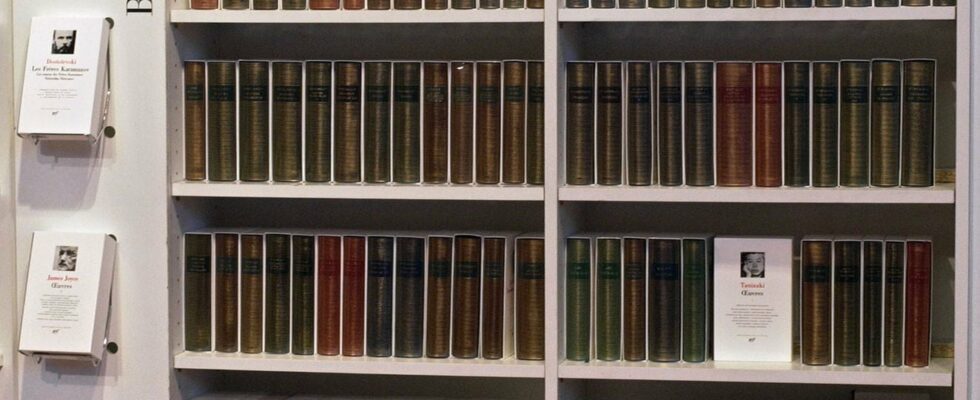Is there life after Francis I? When the monarch, friend of the arts, died at Rambouillet in 1547, the French language lost its greatest defender, responsible in 1539 for the famous Ordinance of Villers-Cotterêts, which established the primacy of French, established in place of Latin as the only language. official in administrative and legal documents. The new king, Henry II, prefers war and hunting to poetry. Will obscurantism prevail? No, because inventive and impertinent young people are mobilizing to exalt the richness and beauty of French.
In 1549, Joachim Du Bellay, 27 years old, published the manifesto at the same time There Defense, and illustration of the French language And Olive, the first collection of sonnets and original lyric verses in French – or how to combine theory with practice. In the process, Pierre de Ronsard, 26 years old, published his Odes. Pontus de Tyard, Jean-Antoine de Baïf, Guillaume Des Autels, Etienne Jodelle and Jean de La Péruse complete this moving group which we will retrospectively call the Pléiade.
Strangely, the Pléiade (the collection) had never before established a volume on this scene. There had indeed been two volumes on Ronsard in 1938, and an anthology of 16th century poets in 1953, but nothing on the Pléiade itself. Already responsible for two Pléiades (that of Rabelais and that of Louise Labé), the academic Mireille Huchon repairs this anomaly by signing a remarkable edition which combines rigor and picturesqueness. Because we didn’t bother with these people… Ronsard was as vain as a peacock (he was the only one to speak of “Pléiade”, placing himself at the head), but he was also the author of the licentious Booklet of folastries (1553), in which Marc-Antoine Muret participated – a humanist who was both scholar and ruffian who was later accused of heresy and sodomy and fled to Venice while he was burned in effigy…
The poets of Pléiade and power
Who remembers Jodelle, the Rimbaud of the 16th century? Who remembers the heated disputes of that time over spelling and grammar? These 1,600 abundant pages allow us to rehabilitate forgotten authors and put certain things into perspective. Because of his megalomania, we imagined Ronsard as André Breton before his time. In the critical apparatus, Mireille Huchon has this response: “No political (or religious) line united all the writers gathered in this volume. If the members of the group readily called Ronsard the “Prince of Poets”, we would be mistaken if the “We compared this “position” to that of the “pope of surrealism” applied to Breton.” Heard. But how can we situate the Pléiade in relation to power? As soon as we talk about an avant-garde movement, the question of its institutionalization inevitably arises. And we must recognize that the Pléiade was not limited to taverns…
Let us point out here that the Court did not stop at Henry II: his sister Marguerite de France had inherited from their father a taste for letters, and served as support for our poets, who venerated her. And we must say a word about the great Jean Du Bellay, uncle of Joachim. A diplomat who traveled through England and Germany, bishop of Paris then cardinal, this esthete and humanist prelate led a rich career close to the Greats. During the reign of François I, he participated with Guillaume Budé in the creation of what would become the Collège de France. He delivered a brilliant speech at the wedding of Catherine de Medici and the future Henri II. Not sparing on luxury, this collector of antiques had a magnificent Italian-style villa built at the abbey of Saint-Maur – this is where Rabelais, his protégé, wrote The Quarter Book (1552).
During the reign of Henry II, Cardinal Du Bellay was sent to Rome, where he was believed to be pope for a time. He received his nephew there from 1553 to 1557, a long stay from which the latter would draw inspiration for his collection Regrets (1558). Jean and Joachim Du Bellay both died in 1560, a year after Henry II. This devil Ronsard will survive them until 1585, after having continually had his work republished. Immersing yourself in this fascinating Pléiade helps you to better understand the prehistory of our language, because let us remember that the French Academy will not be founded until 1634, almost a century later. The Defense… by Joachim Du Bellay. These well-born agitators have innovated a lot. Happy who, like them, had a wonderful journey…
The pleiad. Poetry, poetic. Ed. by Mireille Huchon. La Pléiade/Gallimard, 1,616 p., €69.
.
